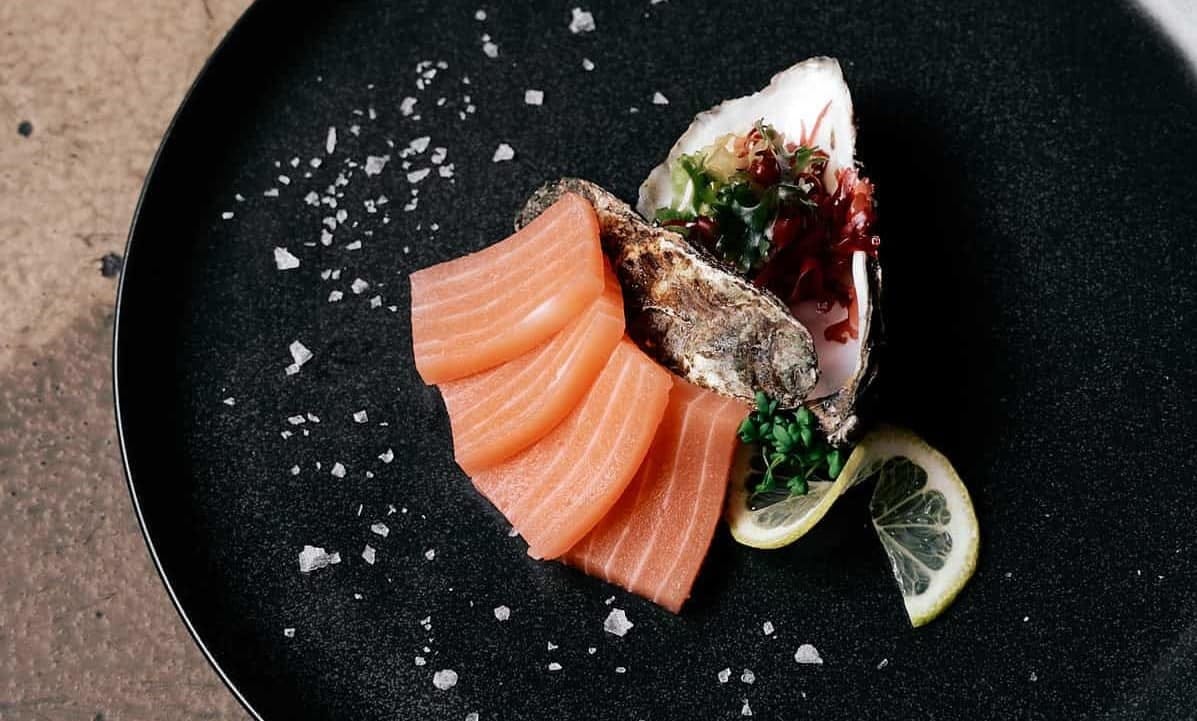Fruit Waste into Good Fats, Japan’s Largest Food Tech Raise, and Italy’s Cultivated Meat Ban Reversal
Also: Is hype hurting the cultivated meat industry?
BIO BUZZ
🧈 Zayt Bioscience is using precision fermentation to upcycle fruit waste into planet-friendly fats and oils

The Berlin-based startup aims to disrupt the plant butter market with its patent-pending technology. It plans to fulfil orders for its Zayt Butter by the end of 2024 with the support of Kynda, a German fermentation tech company that offers plug-and-play bioreactors for alt protein.
Zayt's focus on repurposing fruit waste into a planet-friendly fat alternative addresses the environmental impact of palm and soy oil production, which collectively account for 18% of deforestation globally.
The collaboration with Kynda enables cost reduction, facilitates innovation, and supports the development of sustainable fats and oils. The products benefit various industries, including alternative protein, skincare, and haircare.
Read full article - Green Queen
🇰🇷 South Korean food giant Nongshim is investing ₩10B to support food tech startups, with a focus on cultivated meat
The investment will be split equally between two startup funds based in Seoul and managed by Stonebridge Ventures and IMM Investment, aiming to foster startups that can transform the food value chain.
Nongshim has its own alt protein brand, Veggie Garden, which makes plant-based products ranging from bibimbap and bulgogi to grilled steak, dumplings, and cheese.
Nongshim has been investing in startups with the launch of its Nongshim techUP+ programme in 2018, and it says the value of the stakes it has invested in has more than doubled.
Read full article - Green Queen
🏭 MycoTechnology launched a Fermentation as a Service (FaaS) platform for companies to produce bioproducts at a commercial scale
The FaaS platform offers fermentation capacity services ranging from 300-90,000 L. It provides tools and expertise to address commercial production challenges, including product quality, yield, and cost management.
The platform complies with FDA 21 CFR Part 117 guidelines and holds a GFSI audit certification, ensuring a robust and reliable facility for fermentation services.
MycoTechnology's platform aims to foster innovation in an industry facing production bottlenecks, aligning with the BioMADE program to enhance the US bioindustrial manufacturing ecosystem.
Read full article - vegconomist
🍗 Nourish Ingredients introduces an animal-free fat for plant-based meat to address taste, nutrition, and consumer acceptance challenges

Tastilux, the animal-free fat, is scaled through precision fermentation with natural lipid molecules. Tastilux is said to provide the taste, aroma, and cooking reactions of animal fats in various plant-based proteins.
The company aims to revolutionise plant proteins by leveraging the power of fat. Nourish is collaborating with industry leaders to integrate its innovative fat into a wide array of products.
Nourish Ingredients showcased a realistic, plant-based chicken wing with edible calcium-based bones at the SXSW event in Sydney, highlighting the authentic flavour and texture without involving animals.
Read full article - vegconomist
🤝 Vaess and Marlow Ingredients collaborate to develop binding systems for mycoprotein products to create high-quality mycoprotein alternatives
The Dutch food tech company Vaess specialises in functional ingredients and solutions for food innovation, focusing on plant-based products to meet current and future trends.
UK-based Marlow Ingredients is a division of Marlow Foods, known for being the manufacturer of Quorn Foods' mycoprotein.
The collaboration is driven by the need to adapt to the changing landscape of the global food system, emphasising the importance of responsible and sustainable food production for the benefit of both producers and consumers.
Read full article - vegconomist
🇨🇦 Saskatchewan’s food centre advances precision fermentation in Canada with new facility
The Saskatchewan Food Industry Development Centre’s new facility is designed for production scaling of up to 20,000 L and will provide a platform for companies to experiment with precision fermentation products before establishing their own large-scale production facilities.
Precision fermentation offers new opportunities for Canadian companies to create healthy and nutritious foods without chemical additives, and the Food Centre is actively supporting this technology.
The "Fermentation and Bioengineering Centre of Excellence" within the facility focuses on developing and commercialising novel functional ingredients, including alternative proteins with enhanced functionality and health benefits for consumers.
Read full article - vegconomist
🤝 Cargill’s alt-protein chief: “Our alternative and traditional protein businesses are highly complementary”
The alternative and traditional protein businesses are highly complementary, reflecting an inclusive approach to the future of protein and an ambition to deliver the best protein to a wide range of people.
Consumer expectations are driving innovation and evolution in the alternative protein category, and partnerships with customers are crucial for advancing the category.
The evolution and volatility of the alternative protein category represent significant changes, suggesting that the industry is still in its early stages. The goal is to unlock growth opportunities across all protein types, creating a more accessible protein future.
Read full article - Food Dive
MACRO STUFF
🇮🇹 Italy does a 180 on the cultivated meat ban…for now
Italy initially proposed a bill to ban lab-grown food, including cultivated meat, for the purpose of safeguarding national heritage but faced significant criticism from activists and opposition politicians.
Despite the Senate's approval of the bill, Italy withdrew its TRIS notification to the EU, potentially to avoid a certain rejection. Also, due to EU trade laws, Italy’s bill wouldn’t be able to ban future imports of cultivated meat products as long as they obtained regulatory approval.
While seen as a temporary halt to the ban, it is not considered a definite win for alternative proteins. It’s possible that the Italian government may still continue to pursue the ban through other means, potentially violating EU laws.
Read full article - Green Queen
🇪🇺 The European Parliament has voted in favour of the European Protein Strategy to boost plant protein production and enhance food security
The strategy, while non-binding, can potentially influence the European Commission's policies. It received support with 305 votes in favour, 109 against, and 69 abstentions.
Supporters of the strategy are advocating for dedicated plant protein funds, promotion of legume growth, diversification of protein types, and increased R&D into plant-based proteins.
The strategy is motivated by concerns related to food security, with the recent conflict in Ukraine highlighting the need for increased self-sufficiency and growing awareness of the environmental impact of imported soy on deforestation in the Amazon rainforest.
Read full article - vegconomist
🚨 Leading scientists urge global shift to plant-based food: “We only have 7-8 years to prevent a global climate crisis”
The proposed strategies to address climate change include shifting to plant-based diets, phasing out industrialised animal farming, standardising climate change metrics globally, and ending subsidies for animal products.
The study stated that removing animals from the food system could offset 68% of the world's total greenhouse gas emissions. Animal agriculture is deemed unnecessary and unsustainable to feed the growing global population.
The authors recommend adopting an 'All Life' approach, recognising the interconnection of humans, animals, and plants with global planetary health. Shifting from a human-centric paradigm to an earth-centric one is seen as essential to protecting the future of life on Earth and avoiding irreversible climate change and its devastating consequences.
Read full article - vegconomist
💀 Hype built the cultivated meat industry and now it could end it
The Wired report highlights the disparity between promises and reality in Upside Foods' cell-cultivated meat production, exposing the challenges and limitations of scaling the technology.
Startups in the cell-cultivated meat industry often resort to exaggeration and inflated projections to secure funding, potentially hindering the development of the technology in the long run.
The need for honesty and transparency in presenting the capabilities and challenges of cell-cultivated meat technology is crucial to building trust among investors and consumers, ensuring long-term success and credibility.
Read full article - Fast Company
📉 Meat substitutes need to get a lot cheaper
Meat substitutes are generally more expensive than meat, as observed in a price per kilogram comparison between plant-based substitutes and meat products at a major UK supermarket.
The price gap between meat substitutes and meat products tends to widen when adjusting for protein content. Generally, meat substitutes often have a slightly lower protein content. To be competitive, meat substitutes need to be significantly cheaper, especially to attract middle- and low-income consumers.
Two options for changing the price differential are suggested: implementing a "meat tax" to account for external environmental and social costs associated with meat, or exploring the cost breakdown of meat substitutes to identify ways to reduce their production expenses and make them more affordable.
Read full article - Sustainability by numbers
New here? Devour the free subscription and join a list of founders, investors, and biotech enthusiasts leading the food revolution!
BIO BUCKS
🇯🇵 DAIZ raised ¥7.1B in Series C funding, totalling their financing to ¥13.6B, the largest sum raised for a food tech company in Japan
The Japanese plant-based meat company plans to build a 40,000 sq ft facility in Kumamoto, expected to be the largest plant-based meat factory in Japan, with a production capacity of 20,000 tons annually.
DAIZ uses proprietary soy germination technology called Ochiai to create 'miracle chips,' enabling the production of various vegan products, including meat and eggs, without synthetic additives.
DAIZ has extended its portfolio to include a pea-based variant of Miracle Meat and a new product, Miracle Egg, leveraging Japan's significant consumption of eggs and the prevalence of soybeans in Japanese cuisine.
Read full article - Green Queen
🇩🇪 BLUU Seafood is leading a €1.3M, 3-year research project in Europe to produce flavour-bearing, healthy fish fat cells for human nutrition
The German Federal Ministry of Food and Agriculture is contributing about €500,000 to support the project, recognising the importance of cellular agriculture as a future technology.
The research also includes social science aspects and aims to address the challenges and opportunities presented by the alternative production of meat, fish, and milk in the 21st century.
The project highlights the potential for alternative proteins to contribute to global food security amidst population growth and climate change.
Read full article - vegconomist
🐷 Moolec Science has secured $30M in funding to produce animal proteins from plants
The Warwick-based startup specialises in making animal proteins using plants through molecular farming. A few months ago, the company unveiled soybeans that contained pork proteins.
Moolec formed an agreement with Grupo Insud, securing a convertible note worth $21 million with a strike price of $6 per share, which includes cash and in-kind contributions. Moolec and Grupo Insud previously established a precision fermentation joint venture in 2021.
The funding will improve Moolec's financial position, enabling it to accelerate its business model, invest in R&D projects, and support product development and commercialisation initiatives.
Read full article - Green Queen
SOCIAL FEAST
🥔 What can alt protein companies learn about boosting consumer acceptance from a potato influencer from the 18th century?

Despite facing opposition and losing his job, Parmentier's persistent efforts to promote the potato as a viable food source ultimately led to the lifting of bans and its widespread cultivation.
Parmentier's emphasis on the nutritional benefits of potatoes, backed by personal experiences and scientific research, helped establish the potato's credibility as a rich source of essential nutrients.
Parmentier's creative marketing tactics, such as organising exclusive culinary events featuring potato-based dishes and strategically planting potatoes on the King's lands, effectively bridged the gap between different social classes.
Read Parmentier's story on LinkedIn - Marina Schmidt
🏷 Plant-based foods are under attack in some countries, accused of deceiving consumers – but is this really the case?
Some jurisdictions face challenges in labelling plant-based foods due to accusations of misleading consumers. In reality, these challenges are more about competition than consumer protection, with the meat and dairy industries resisting references to animal-free products.
South Africa and Chile have taken strict measures to restrict the labelling of plant-based foods, including banning meat-related terms and challenging trademarks that contain dairy terms.
Instead of imposing restrictions, some countries, like Germany, have issued guidelines that align with consumer understanding and use of food labels, promoting a more progressive and accommodating approach.
Read post on LinkedIn - Mathilde Do Chi
Got a taste for this newsletter? Dish it out to your friends!👇🏾
EAR FOOD
🎙 Ali Khademhosseini's path to redefining the meat industry with Omeat
Show: Cultured Meat and Future Food Podcast
Host: Alex Shirazi
Guest: Dr. Ali Khademhosseini, CEO at Omeat
Ali is among the world's leading tissue engineers. He is the founding director at the Terasaki Institute for Biomedical Innovation, out of which Omeat was born. After learning about the environmental impacts of the conventional meat industry, he realised that his extensive experience with tissue engineering could be used to create cultivated meat that is produced more sustainably.
Ali pivoted his focus to enter the field, developing Omeat’s unique cultivation process poised to redefine the industry. The company has created a novel, IP-backed method that makes it possible to grow any type of meat in a way that is far more compassionate and sustainable than the traditional method.
Omeat aims to be a vertically integrated meat company, and while they are focused on bringing their own meat products to the market, they are also open to collaborating with other companies in the cellular agriculture field, such as those producing leather, milk, seafood, and more.
THAT’S ALL FOR THIS WEEK!
Take care, and have an awesome week! 🙌🏾
Are you new here?
Know any other geeks who would dig this newsletter?




